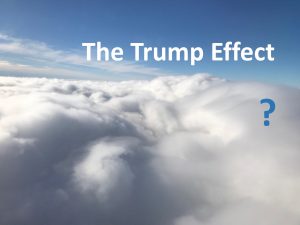President Trump’s executive order barring travelers and immigrants from seven Muslim-majority countries was halted on Friday by U.S. District Judge James Robart.
Bob Ferguson, Washington state’s attorney general filed the suit in Robart’s court, arguing that the travel ban significantly harms residents and effectively mandates discrimination on the basis of religion, specifically targeting Islam.
As Trump’s controversial order plays out in the courts, it is important to consider the unintended economic and security effects of increasing regulations on religion.
Security
Extensive research shows that increased government regulation of religion leads to more violence and less safety.
In The Price of Freedom Denied, Roger Finke and I demonstrate that the most convenient action, and often the one with public support, is to restrict the actions of the religions perceived to threaten the state, the dominant religion, or both.
Indeed, while governments typically view religious regulation as a necessity to maintain order and reduce potential violence, the irony is that more regulation leads to increased persecution, which means less order and more violence, as shown by the data.
These results should not surprise any savvy observer familiar with the benefits of religious liberty protections in the United States and other countries. The history of modern Japan provides an excellent case study of these dynamics. Before World War II, the government favored Shintoism, the traditional Japanese religion, at the expense of its citizens who followed “foreign” religions. The ruling party’s political rhetoric not only demonized all other religions—it coopted Shintoism into the service of an imperial war machine.
By contrast, since World War II the Japanese people have enjoyed robust protections for religious freedom. And violent religious persecution has been extremely rare. When Japan has experienced religion-motivated terrorism, it has upheld its religious liberty policy while vigorously pursuing all terrorists.
Even after members of the Aum Shinrikyo religious group committed deadly sarin gas attacks on the Tokyo subway system, Japan resisted placing restrictions on the entire religion. Rather than creating new domestic enemies and “martyrs,” Japan eliminated the violent and criminal elements within Aum by following the rule of law and ensuring equal protection and freedom to the non-violent.
Turning to the United States, Pew Research Center data illustrates the same dynamics happening here as seen around the globe. By 2010, government restrictions on religion in the United States had for the first time increased from “low” to “moderate.” Not surprisingly, the incidence of social hostilities involving religion in the United States during the same period increased from “low” to “moderate.” Examples range from openly anti-religious opposition to building churches, synagogues, and mosques to shootings and other acts of violence.
The data are abundantly clear — security and stability result from religious freedom. When freedom is protected for all religions equally, leaders in government and society are far less likely to choose words and deeds that add to religious animosity and divisions. This prevents the cycles of rising religious tensions and violence playing out in nations across the globe today.
Economy
As the world navigates away from years of poor economic performance, religious freedom may be an unrecognized asset to economic recovery and growth, according to a 2014 study I co-authored with Greg Clark and Robert Edward Snyder of Brigham Young University’s International Center for Law and Religion Studies.
We found that religious freedom is one of only three factors significantly associated with global economic growth (see press release). The study looked at GDP growth for 173 countries in 2011 and controlled for two-dozen different financial, social, and regulatory influences.
The study also examines and finds a positive relationship between religious freedom and ten of the twelve pillars of global competitiveness, as measured by the World Economic Forum’s Global Competitiveness Index.
One reason religious freedom adds to the economic vibrancy of a country is that it sets people of faith free to do good, to innovate, and the have the desire to contribute socially and economically to the national good.
This is evident in the U.S. economy, where religion annually contributes nearly $1.2 trillion of socio-economic value, according to a 2016 study Melissa Grim and I published also in the Interdisciplinary Journal of Research on Religion.
— That is equivalent to being the world’s 15th largest national economy, putting it ahead of about 180 other countries.
— It’s more than the annual revenues of the world’s top 10 tech companies, including Apple, Amazon and Google.
— And it’s also more than 50% larger than that of the annual global revenues of America’s 6 largest oil and gas companies.
So – you might say – that represents a lot of spiritually inspired fuel being pumped into the U.S. economy, much of it thanks to the freedom people of faith have to exercise their religion in community with others.
Conclusion
Religious freedoms are fragile because restrictions placed on minority religions can easily be unseen, ignored, or even supported by those in the majority. Like any liberty, religious freedoms force those in power to protect the rights of minorities, even when the majority does not agree. Enforcing this liberty comes with a price, but the price of denying the freedom is far higher.
Faith by the Numbers- The Socio-economic Impact of Religion in the U.S. from Religious Freedom & Business Foundation.

